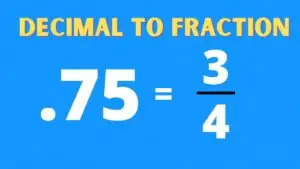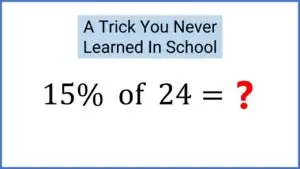In the realm of mathematics, the term “evaluate” holds significant importance. It refers to the process of determining or calculating the value of a mathematical expression or equation. Whether you’re a student beginning your mathematical journey or an enthusiast seeking a deeper understanding, this article will explore the meaning of evaluation in math, provide clear examples, and shed light on its practical applications.

✅ AI Essay Writer ✅ AI Detector ✅ Plagchecker ✅ Paraphraser
✅ Summarizer ✅ Citation Generator
Definition of Evaluate in Math
Evaluation, in mathematical terms, involves finding the numerical value of an expression or equation. It encompasses a systematic approach to solving mathematical problems by substituting variables with specific values and simplifying the expression to obtain a precise result.
The Importance of Evaluation
Evaluation is crucial for problem-solving in math. It is a fundamental skill that allows mathematicians to find solutions efficiently. It also serves as a building block for advanced mathematical concepts like algebra, calculus, and trigonometry.
Practical Applications of Evaluation in Math: Evaluation has practical applications in various fields. It is essential in financial calculations such as compound interest and investment returns. In physics and engineering, evaluation helps solve equations related to motion, forces, and energy. Computer programming relies on evaluation for writing algorithms and solving complex problems.
Examples of Evaluation in Math
Let’s explore some examples to grasp the concept of evaluation better:
Evaluating Algebraic Expressions: Consider the expression: 3x + 5, where x = 2. To evaluate this expression, substitute the value of x with 2: 3(2) + 5 = 6 + 5 = 11
Evaluating Equations: Let’s evaluate the equation 2y + 4 = 10. To find the value of y, we need to isolate it on one side of the equation: 2y = 10 – 4 = 6 Dividing both sides by 2, we get: y = 6 ÷ 2 = 3
Evaluating Formulas: Suppose we have the formula for the area of a circle, A = πr². To find the area of a circle with a radius of 5 units, substitute the value of r: A = π(5)² = 25π
Practical Applications of Evaluation in Math
Financial Calculations: Evaluation plays a vital role in financial calculations, such as calculating compound interest, mortgage payments, and investment returns. By evaluating the relevant equations and expressions, individuals can make informed financial decisions.
Physics and Engineering: In physics and engineering, evaluation is crucial for solving equations related to motion, forces, energy, and electrical circuits. Evaluating these equations allows scientists and engineers to make accurate predictions and develop innovative solutions.
Computer Programming: In computer programming, evaluation is an integral part of writing algorithms and solving complex problems. Programmers evaluate expressions and equations to obtain precise results, enabling the development of efficient software applications.
Tips for Mastering Evaluation in Math
Understand the Order of Operations: To evaluate mathematical expressions correctly, it is essential to follow the order of operations (PEMDAS/BODMAS), which specifies the sequence of steps to be performed. This order includes parentheses, exponents, multiplication and division (from left to right), and addition and subtraction (from left to right).
Practice Regularly: The key to mastering evaluation in math is practice. Solve a variety of problems involving different types of expressions and equations. This will enhance your skills and make you more confident in evaluating mathematical expressions.
Seek Clarity and Guidance: If you encounter challenges while evaluating complex expressions or equations, don’t hesitate to seek guidance from teachers, tutors, or online resources. Clearing doubts and understanding the underlying concepts will strengthen your evaluation skills.
Evaluation in math holds great significance as it enables us to find the value of expressions and equations accurately. By understanding the concept of evaluation, practicing regularly, and applying it to real-life scenarios, you can develop a strong foundation in mathematics. Embrace the power of evaluation, and it will serve as a valuable tool in your mathematical journey.
Remember, evaluation is not merely a mathematical process but a way to unravel the beauty and precision inherent in the language of numbers. With dedication and practice, you will become proficient in evaluating mathematical expressions and equations, opening doors to a world of endless possibilities.
FAQ
What are the key steps to evaluating mathematical equations?
To evaluate a mathematical equation, you need to understand the equation or expression, substitute given values for variables, simplify the equation using the order of operations, and continue simplifying until you arrive at a final value or simplified expression.
What is the importance of evaluating in math?
Evaluating in math is important because it allows us to find the exact value of expressions and equations. It plays a crucial role in problem-solving and serves as the foundation for advanced math concepts. Evaluation enables accurate calculations, real-life problem-solving, and a better understanding of the relationships between numbers and variables.
How can I apply evaluation skills beyond the classroom?
Evaluation skills can be applied beyond the classroom in practical ways. For example, in financial calculations, you can use evaluation to budget, invest, and understand compound interest. In science and engineering, evaluation helps solve equations related to motion, forces, energy, and circuits. Additionally, in computer programming, evaluation is useful for solving complex problems, creating algorithms, and developing software applications.
Where can I find additional resources to practice evaluating math expressions?
Additional resources for practicing the evaluation of math expressions can be found in math textbooks and workbooks, online educational platforms that offer interactive exercises and tutorials, and through math tutoring services that provide practice materials, guidance, and personalized support.
Can evaluation be applied to more advanced math concepts?
Yes, evaluation can be applied to more advanced math concepts. It is a fundamental skill used in algebra, calculus, trigonometry, and other advanced branches of math. Evaluation plays a vital role in solving complex equations, simplifying expressions, and understanding the behavior of mathematical functions. Proficiency in evaluation is essential for success in higher-level math courses and practical applications.
Follow us on Reddit for more insights and updates.





Comments (0)
Welcome to A*Help comments!
We’re all about debate and discussion at A*Help.
We value the diverse opinions of users, so you may find points of view that you don’t agree with. And that’s cool. However, there are certain things we’re not OK with: attempts to manipulate our data in any way, for example, or the posting of discriminative, offensive, hateful, or disparaging material.